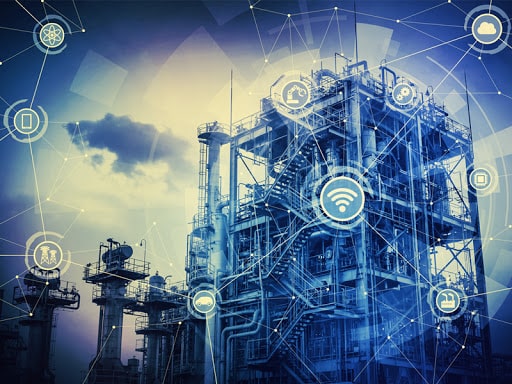
At present, economic growth is associated with increased pollution and degradation of the environment, depletion of natural resources, imbalance of the biosphere, climate change, which leads to deterioration of human health and limits opportunities for further development. This means that the critical task of improving the well-being of the population does not provide the necessary quality of life.
All this defines the essence of modernization as ensuring technological progress for economic development and maintaining a favorable natural environment (environmental security, which becomes crucial for economic growth and human existence itself).
A “green economy” is defined as an economy that enhances human well-being and ensures social justice.
Important features of such an economy
- efficient use of natural resources;
- conservation and increase of natural capital;
- pollution reduction; low carbon emissions;
- prevention of loss of ecosystem services and biodiversity;
- income and employment growth.
The green economy is seen in the context of the fight against global climate change and the promising direction of recovery from the financial and economic crisis. The priority feature of its growth is radical improvement of energy efficiency, which determines the need for economic modernization, including innovative development and energy efficiency.
Thus, it is obvious that in the world the environmental factor is becoming an increasingly important priority for the formation of a new economy, modernization and technological renewal. Going forward, it is proposed to mobilize and restructure the global economy towards increased investment in clean technologies and “natural” infrastructure, to stimulate green economy, to return markets to normal functioning and to avoid the catastrophic consequences of global climate change.
Implementation of the new green policy envisages minimizing the use of non-renewable minerals for electricity generation through investments in renewable energy sources, as well as mandatory energy saving. All these activities will reduce energy demand and costs as well as the cost of energy.
However, implementation of this direction requires significant technological changes in the modern world industry.
In particular, order to form a green economy and transition to environmentally sustainable development, it is necessary to change the existing type of development and reverse the trends of unsustainable development in the economy. A key role in this process should be played by the transition from an extensive export model of economic development to an environmentally balanced (adapted) modernization of economic development and ‘ecologization’ of the economy.
Thus, serious changes are needed in the use of certain technologies in all spheres of the national economy, as well as the introduction of certain technological changes in the relevant industries.
The definitions of “technology” and “technological changes” are widely used in modern scientific literature. The diversity of the definition of these definitions requires reflection, generalization and research. This is of fundamental scientific and practical importance due to the fact that technological development plays a decisive role in the progress of society and acts as an object of management, not only as an object of research.
The significance of applying the term “technology” (from Greek teche – art and logos – word, doctrine) in the study is determined by the fact that it is considered as an objective, materially formed form of existence of technological changes. At the same time, the multivariate content of its terminology in the special and economic literature requires the most detailed study of this definition.
Thus, technology can be considered as a science of methods of processing raw materials into means and objects of consumption and production, as a scientific discipline, as a way of using resources, as a way of doing business.
In addition, in the modern sense, the term “technology” includes technology of operations, technology of materials, technology of knowledge and is able to determine the degree of variability and uncertainty of the elements of the technological sphere in relation to the degree of uncertainty of problems. Some economists see technology as a set of conditions for social production: public (means and objects of labor, including natural resources) and personal.

The “green economy” proposes to “mobilize and restructure the global economy towards increased investment in clean technologies and “natural” infrastructure, stimulate green economies and avoid the catastrophic effects of global climate change.
Implementation of the new green policy envisages minimizing the use of non-renewable minerals for electricity generation through investments in renewable energy sources, as well as mandatory energy saving. All these activities will reduce energy demand and costs, as well as its cost”.
As a consequence, the technology has to be assigned to primary variables in a broad sense. Along with this, technology is also an adjustable variable. First of all with regard to the management system inside organizational processes, as it is the subject of conscious and purposeful choice
Thus, the effectiveness of innovation activity was largely related to the innovation development and life cycle of innovation, which has “the stages of origin of innovation, early innovative development, late innovative development, maturity and crisis management, decay (attenuation) of innovation and the emergence of a new wave”.
New technologies of the first revolution were a steam machine, a spinning machine, etc., that is, hand tools were replaced by machines. The consequences of the second industrial revolution were an internal combustion engine, the use of electricity and the beginning of communication technologies in the form of a telegraph and telephone.
The spatial and economic transformation and modernization of the world community, namely, the orientation of economic systems to an innovative type of development, predetermined the directions of development of the production environment and the corresponding infrastructure support.
Due to the existing institutional, economic and sectoral peculiarities of the economic systems, the formation of infrastructure support has been taking place at different rates, and the effectiveness of their impact on the dynamics of innovation processes taking place in the economic system also varies.
Transition from one type of development of economic systems to another means the necessity of transition from one management institution to another. Thus there is a necessity of complex studying, formation and development of institutes of infrastructural maintenance of innovative development of economic systems that allows to reveal tendencies of rapprochement of auxiliary and industrial sectors and to eliminate existing gaps between them.
We are talking about the role of knowledge, intellectual capital and technological innovations in the economic development of countries, one of the conditions of which is the creation of an “innovation environment”, which is understood as “a set of all socio-economic subsystems that provide access to various resources and provide some or other support to participants in innovation activities.
In modern conditions formation and development of the innovative environment becomes the defining factor of steady development of innovative economy which is connected with use of results of scientific researches and developments for creation of essentially new kinds of production, creation and application of new technologies of its manufacture with the subsequent introduction and realization in the market.
It can thus be concluded that the impact of new technologies and technological change on the green economy is significant and key. The state should support the development of processes that promote green technologies, as the well-being of society as a whole depends on it.
